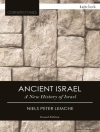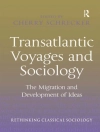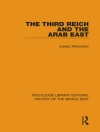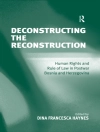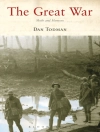The relationship between historical studies and psychoanalysis remains an open debate that is full of tension, in both a positive and a negative sense. In particular, the following question has not been answered satisfactorily: what distinguishes a psychoanalytically oriented study of historical realities from a historical psychoanalysis? Skepticism and fear of collaboration dominate on both sides. Initiating a productive dialogue between historical studies and psychoanalysis seems to be plagued by ignorance and, at times, a sense of helplessness. Interdisciplinary collaborations are rare. Empirical research, formulation of theory, and the development of methods are essentially carried out within the conventional disciplinary boundaries. This volume undertakes to overcome these limitations by combining psychoanalytical and historical perspectives and thus exploring the underlying “unconscious” dimensions and by informing academic and nonacademic forms of historical memory. Moreover, it puts special emphasis on transgenerational forms of remembrance, on the notion of trauma as a key concept in this field, and on case studies that point the way to further research.
表中的内容
Preface to the Series
Alon Confino
List of Figures
Introduction: Psychoanalysis, History and Historical Studies: A Systematic Introduction
Jürgen Straub
PART I: THE CONSTRUCTION OF MEMORY AND HISTORICAL CONSCIOUSNESS
Chapter 1. Three Memory Anchors: Affect, Symbol, Trauma
Alaida Assmann
Chapter 2. Origin and Ritualisation of Historical Awareness: A Group Analytic View and an Ethnohermeneutic Case Reconstruction
Hans Bosse
Chapter 3. Identity, Overvaluation and Re-presentating Forgetting
Hinderk M. Emrich
PART II: SHOAH: THE CHAIN OF GENERATIONS
Chapter 4. Transgenerational Trauma, Identification and Historical Consciousness
Werner Bohleber
Chapter 5. On the Myth of Objective Research after Auschwitz: Unconscious entanglements with the National Socialist past in the investigation of long-term psychosocial consequences of the Shoah in the Federal Republic of Germany
Kurt Grünberg
Chapter 6. Understanding Transgenerational Transmission: The Burden of History in Families of Jewish Victims and their National Socialist Perpetrators
Jürgen Straub
PART III: CASE STUDIES IN PSYCHOANALYSIS AND LITERARY CRITICS
Chapter 7. On Social and Psychological Foundations of Anti-Semitism
Karola Brede
Chapter 8. From Religious Fantasies of Omnipotence to Scientific Myths of Emancipation: Freud and the Dialectics of Psychohistory
José Brunner
Chapter 9. Working Towards a Discourse of Shame: (Working with Shame Discourse) – A Psychoanalytical Perspective on Postwar German Literary Criticism
Irmgard Wagner
Bibliography
Notes on the Contributors
Index
关于作者
Jürgen Straub is Professor of Psychology at the University of Chemnitz. He was research director and member of the management committee at the Institute for Advanced Studies in the Humanities Essen (Kulturwissenschaftliches Institut Essen, KWI) from October 1999 to September 2001. Beginning in April 2004, he will lead the research group Intercultural Communication – Intercultural Competence at the KWI. His research topics include the psychology of cultural practices, methodology of qualitative research, and historical consciousness.


